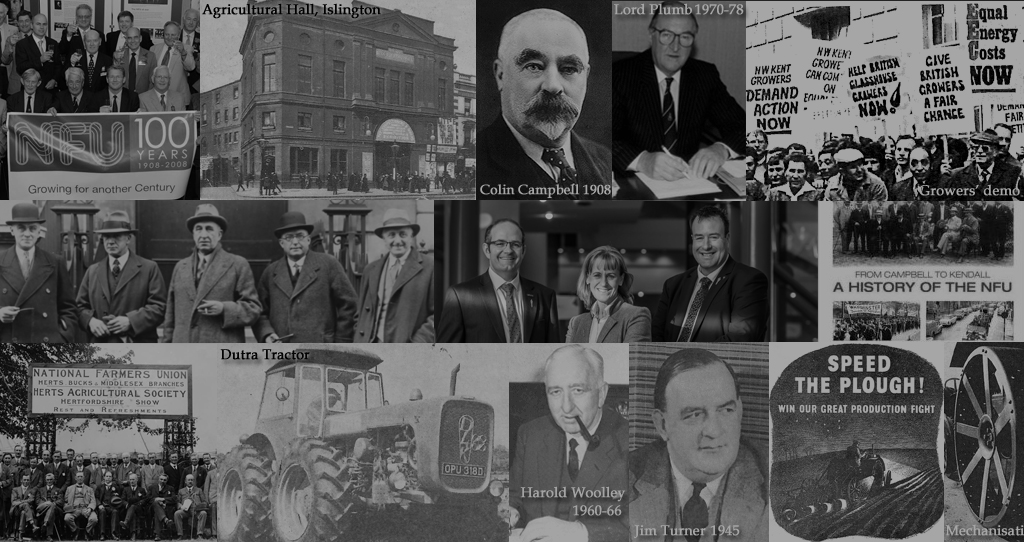From our beginnings at the Smithfield Show in 1908, the National Farmers’ Union (NFU) of England and Wales now represents more than 44,000 farming and growing businesses.
We are proud to be the voice of British farming, ensuring our members are heard when and where it matters most.
For farmers, by farmers
The story of the NFU first started in an antechamber at the bustling London-based Smithfield Show where a meeting was called to discuss whether a national organisation should be formed to represent the interests of farmers. They reached an agreement and the outcome was the National Farmers Union (NFU).
Our first President, Colin Campbell, worked tirelessly to get new branches off the ground, encourage membership and establish the NFU's credibility with government, at a time when farming was going through the longest and deepest depression in its history, as imports of cheap grain and frozen meat flooded in from abroad. Over the years the organisation has been led by Presidents from all over the country, with our most recent being North Essex farmer Tom Bradshaw.
In 1968, the Welsh Council elected its first Chairman from among its members and so began the long tradition of Chairmen and Presidents within the NFU in Wales. NFU Cymru was established in 1999 at the time of the advent of devolved government in Wales and the National Assembly.
The role of the NFU
From seeing in the Agriculture Act in 1947 and traversing farming crises, to experiencing both the joining and leaving of the European Union and more, the NFU has always been there to ensure the needs of farmers are represented at the heart of political decision making.
Today the NFU is governed by NFU Council, which has about 85 members, made up of the national officeholders, commodity chairs and farmers and growers representing individual counties.
From those modest and difficult beginnings, the organisation has grown to become one of the most effective and respected trade associations in Britain. Our work doesn’t stop here – as we head into a future outside of the European Union, the role of the organisation in representing the needs of British agriculture and horticulture has never been more vital.
